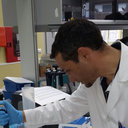Irish
Albanian
Arabic
Armenian
Azerbaijani
Belarusian
Bengali
Bosnian
Catalan
Czech
Danish
Deutsch
Dutch
English
Estonian
Finnish
Français
Greek
Haitian Creole
Hebrew
Hindi
Hungarian
Icelandic
Indonesian
Irish
Italian
Japanese
Korean
Latvian
Lithuanian
Macedonian
Mongolian
Norwegian
Persian
Polish
Portuguese
Romanian
Russian
Serbian
Slovak
Slovenian
Spanish
Swahili
Swedish
Turkish
Ukrainian
Vietnamese
Български
中文(简体)
中文(繁體)
European Review for Medical and Pharmacological Sciences 2019-Mar
Ní féidir ach le húsáideoirí cláraithe ailt a aistriú
Logáil Isteach / Cláraigh
Sábháiltear an nasc chuig an gearrthaisce
An bunachar luibheanna míochaine is iomláine le tacaíocht ón eolaíocht
- Oibreacha i 55 teanga
- Leigheasanna luibhe le tacaíocht ón eolaíocht
- Aitheantas luibheanna de réir íomhá
- Léarscáil GPS idirghníomhach - clibeáil luibheanna ar an láthair (ag teacht go luath)
- Léigh foilseacháin eolaíochta a bhaineann le do chuardach
- Cuardaigh luibheanna míochaine de réir a n-éifeachtaí
- Eagraigh do chuid spéiseanna agus fanacht suas chun dáta leis an taighde nuachta, trialacha cliniciúla agus paitinní
Clóscríobh symptom nó galar agus léigh faoi luibheanna a d’fhéadfadh cabhrú, luibh a chlóscríobh agus galair agus comharthaí a úsáidtear ina choinne a fheiceáil.
* Tá an fhaisnéis uile bunaithe ar thaighde eolaíoch foilsithe



